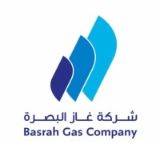Access to our analyst
Having access to our analyst is a premium feature of the TXF Data subscription. This service is provided to help you with more complicated data queries, or in case you have a pressing matter that requires some specific data, such as a presentation or a client meeting.
How does it work?
The process is simple: just click on the button below and send us an email explaining what you need. We will send you the data aggregations, analysis and the list of deals that meet the criteria you are interested in. The output will be a spreadsheet that we will send back to your email address.
We typically send the information requested back to you the next working day, but you will receive a more accurate estimation of the time we will require to fulfil your request once we receive details of it. Extractions may take longer during busy periods.
The message below tells you if your company has access to this service. If you do, please just send us your query by pressing on contact analyst. If you do not, please contact us to find out more.
We are looking forward to your requests.


